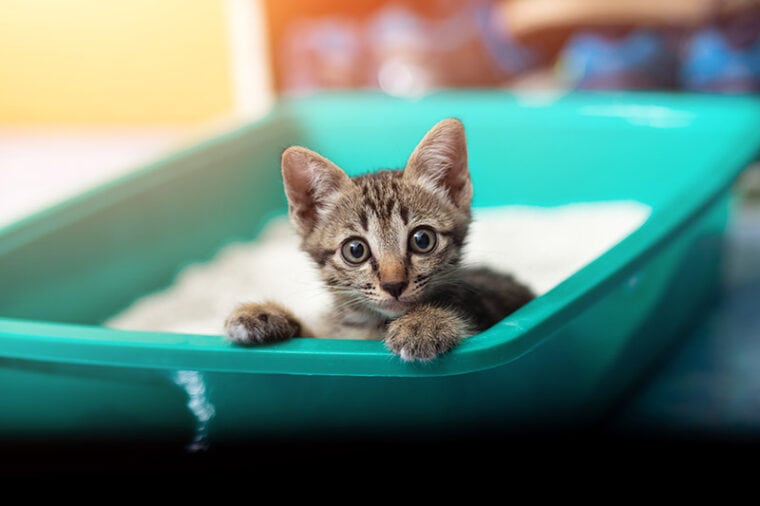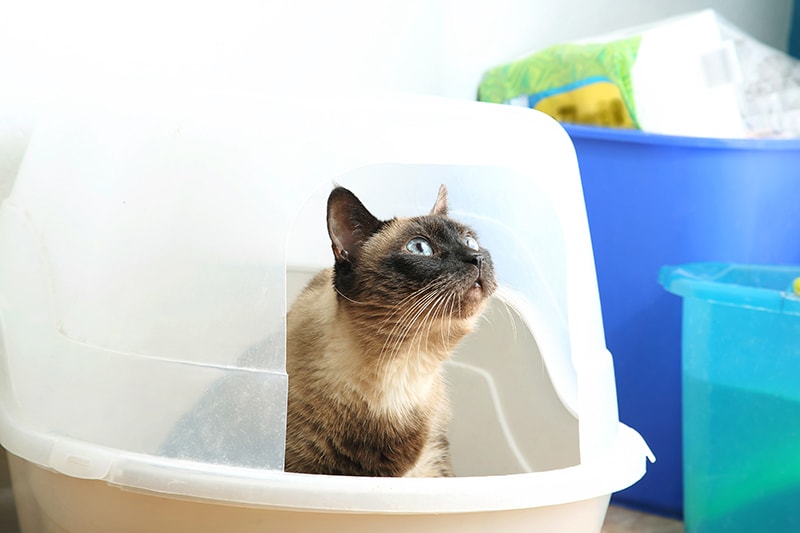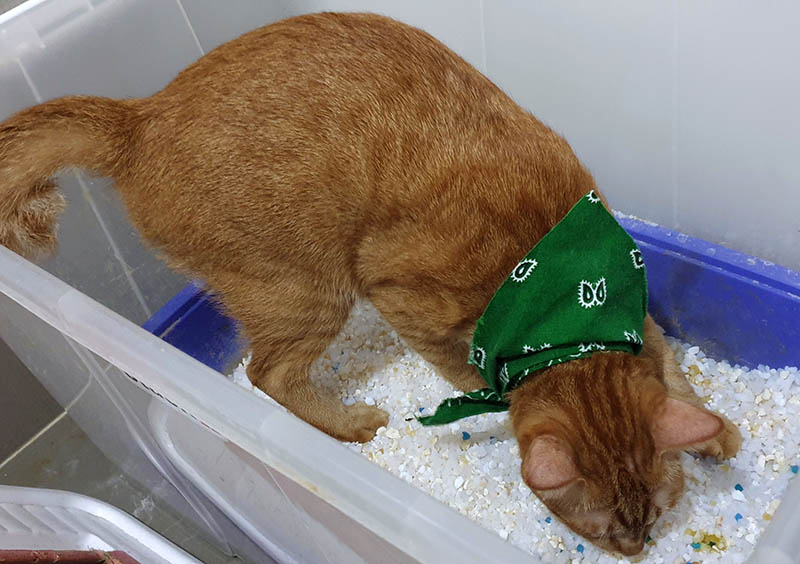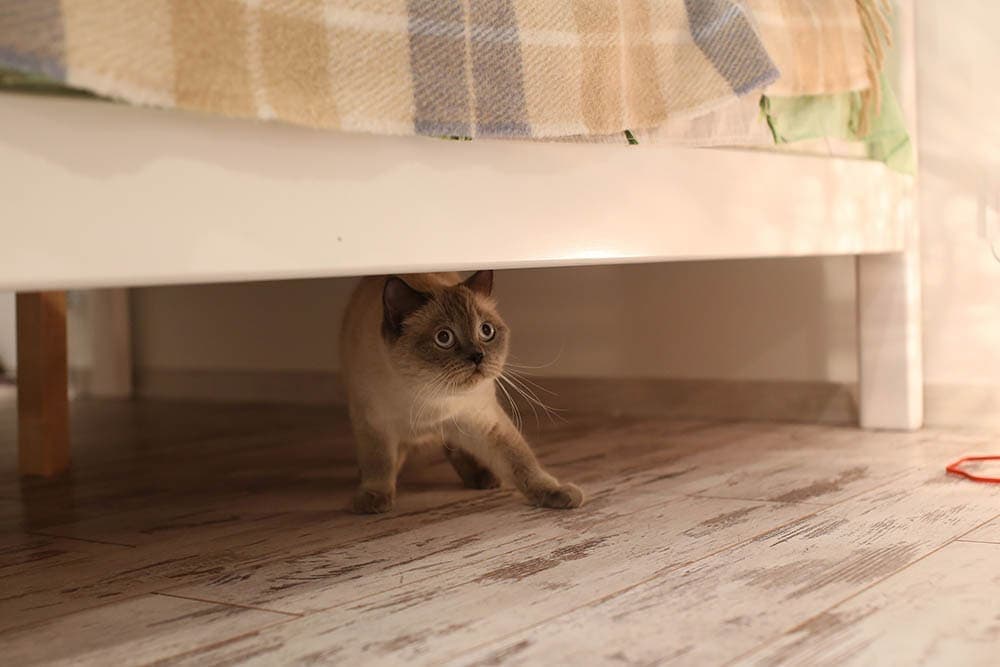
Cats can often do things that leave us feeling perplexed. While some behaviors are unexplainable, strange litter box habits often can be deduced. Cats can play or lay in their litter box for many reasons. They can do it out of boredom, or they may be looking for a safe hiding spot. Some cats may spend extra time in the litter box due to urinary issues. Here are some common reasons why your cat may be playing in their litter box.
The 5 Reasons Cats May Play in the Litter Box
Your cat can start to play in the litter box for a variety of reasons. Because there can be many different causes, it can be helpful to work with a cat behaviorist to find the root cause of this behavior. The following are some of the most common reasons why your cat may start to spend more time in the litter box.
1. Boredom
Bored cats that don’t have enough physical and mental stimuli may resort to playing in the litter box. They can scoop the litter and play around with it to keep themselves occupied. So, make sure to provide plenty of exercise opportunities throughout the day and lay out fun and engaging toys for your cat to play with. Your cat will also most likely enjoy climbing vertical spaces, so consider installing a cat tree or shelves that your cat can climb and leap onto.

2. New Cat Litter
Cats have sensitive paws, and they’ll most likely notice if you switch to new cat litter too quickly. They may end up testing out the litter by scratching or digging and be intrigued by the feeling of a new sensation.
If you plan to change the cat litter, it’s best to do it in a slow transition. Incorporate a small amount of the new cat litter with the old cat litter and gradually add more of the new litter into the mix. This will help make the switch more comfortable for your cat and will reduce the likelihood of your cat playing with the new litter.
3. Dirty Litter Box
Cats like to hide their feces and urine to reduce the smell. They’ll scratch and dig until they’re satisfied with how well-hidden their feces and urine spots are. If your litter box is too dirty, your cat may continue to dig in an attempt to hide the smell.
So, make sure to scoop the litter box and clean it out regularly. Keeping the litter box area tidy and clean can deter your cat from scratching and digging around excessively.

4. Urinary Issues
Cats can experience difficulty urinating if they have a urinary tract infection or another urinary disease. You may notice your cat spending more time in the litter box or going to the litter box more frequently if they have a urinary issue.
If you don’t notice any environmental changes that may be causing your cat to spend more time in the litter box, it can be helpful to visit your veterinarian for a physical check-up. Your veterinarian can help you determine if your cat’s new litter box behavior is due to a medical issue and develop an effective treatment plan to help your cat feel better.
5. Looking for Safe Hiding Spaces
Litter boxes are usually located in quiet, inconspicuous places. So, if your cat doesn’t have safe spaces that they can retreat to when they need privacy or rest, they may resort to hiding in the litter box instead.
Make sure to have a few hiding spaces located throughout your home where your cat can rest. Cat beds, boxes, and perches are all excellent resting places that help cats feel safe. It’ll also be helpful to place these hiding spaces in quiet areas of the home where there isn’t very much foot traffic.

Conclusion
Cats can start to spend more time in their litter box for a variety of reasons. This isn’t normal cat behavior, and it can also be a sanitary issue. So, make sure to figure out what’s causing your cat to play in the litter box so that you can come up with solutions to prevent your cat from engaging in this behavior. If you ever have any trouble at all, don’t hesitate to enlist the help of a cat behaviorist to come up with creative solutions for keeping your cat healthy and happy.
Featured Image Credit: Boonlert Saikrajang, Shutterstock






